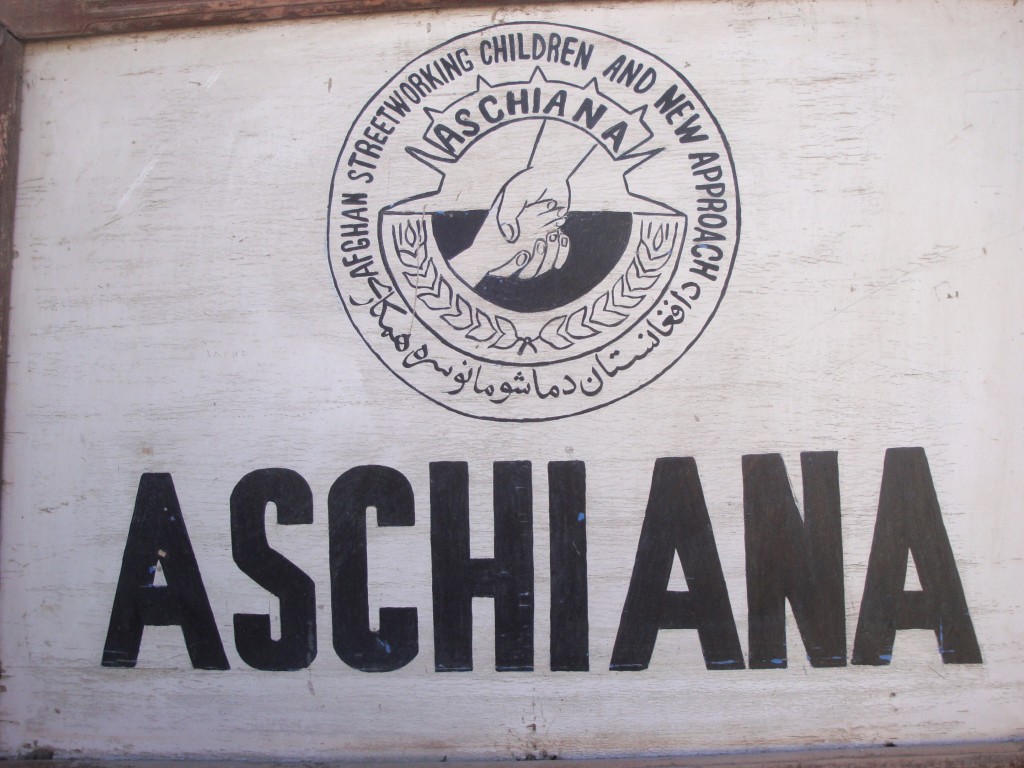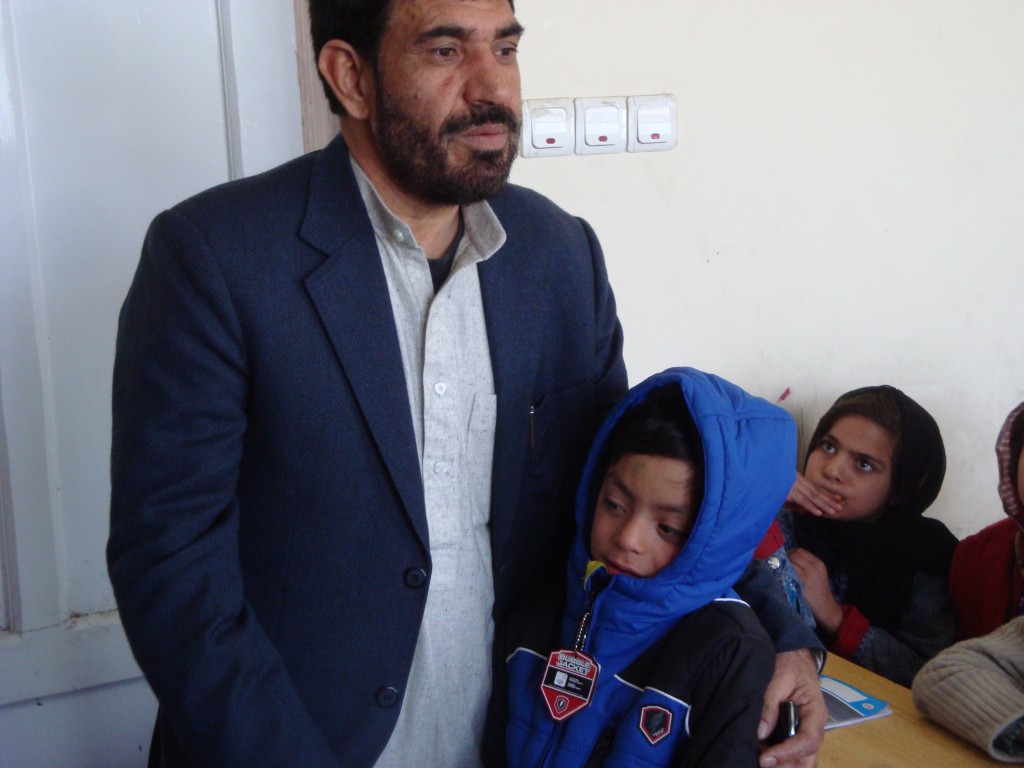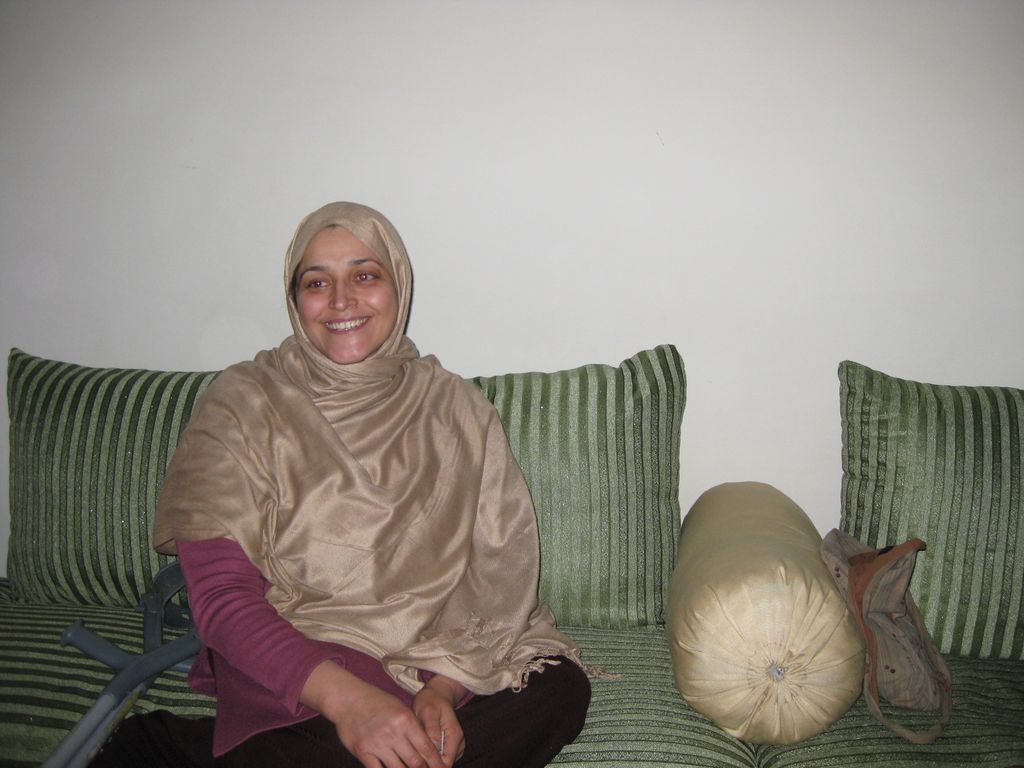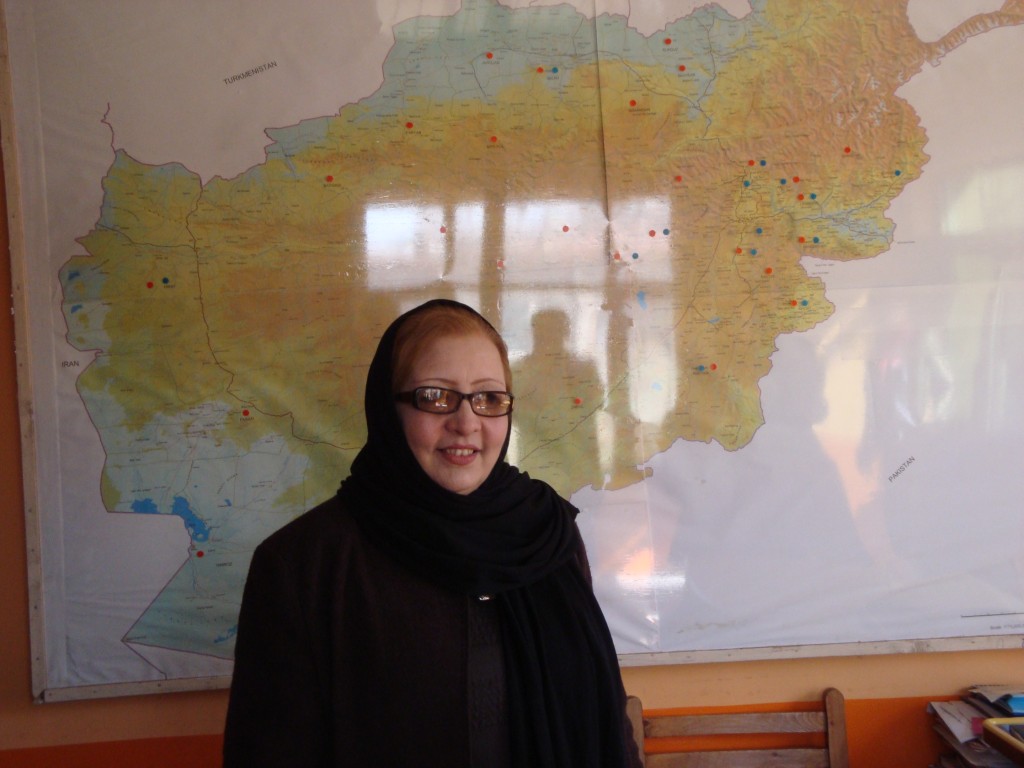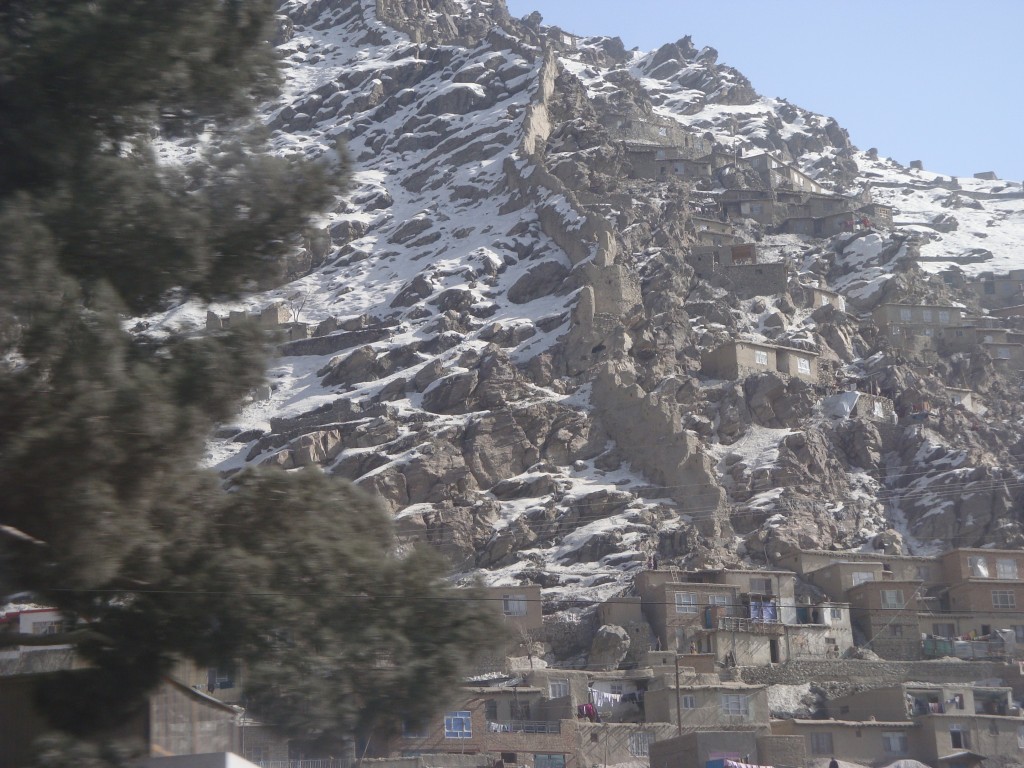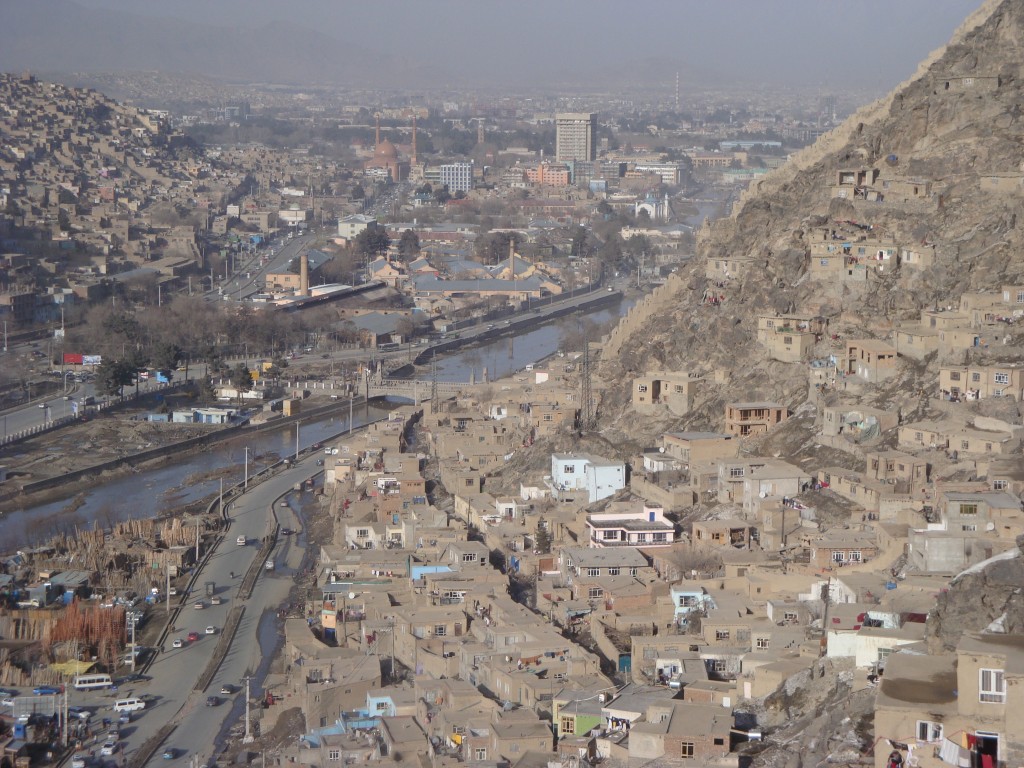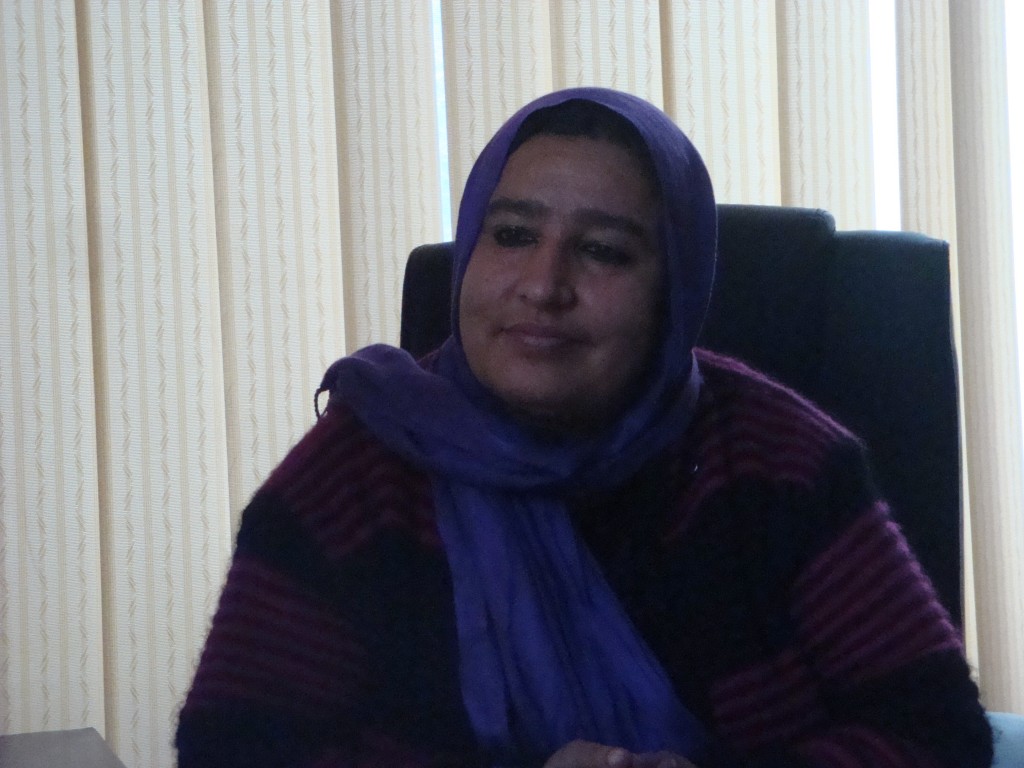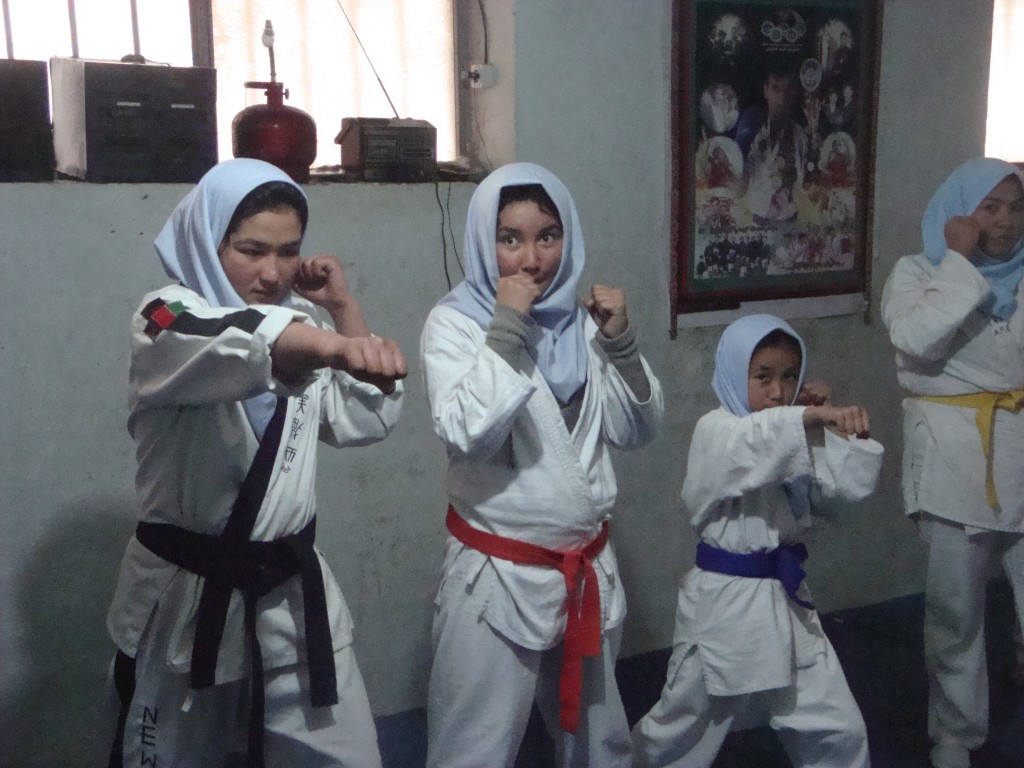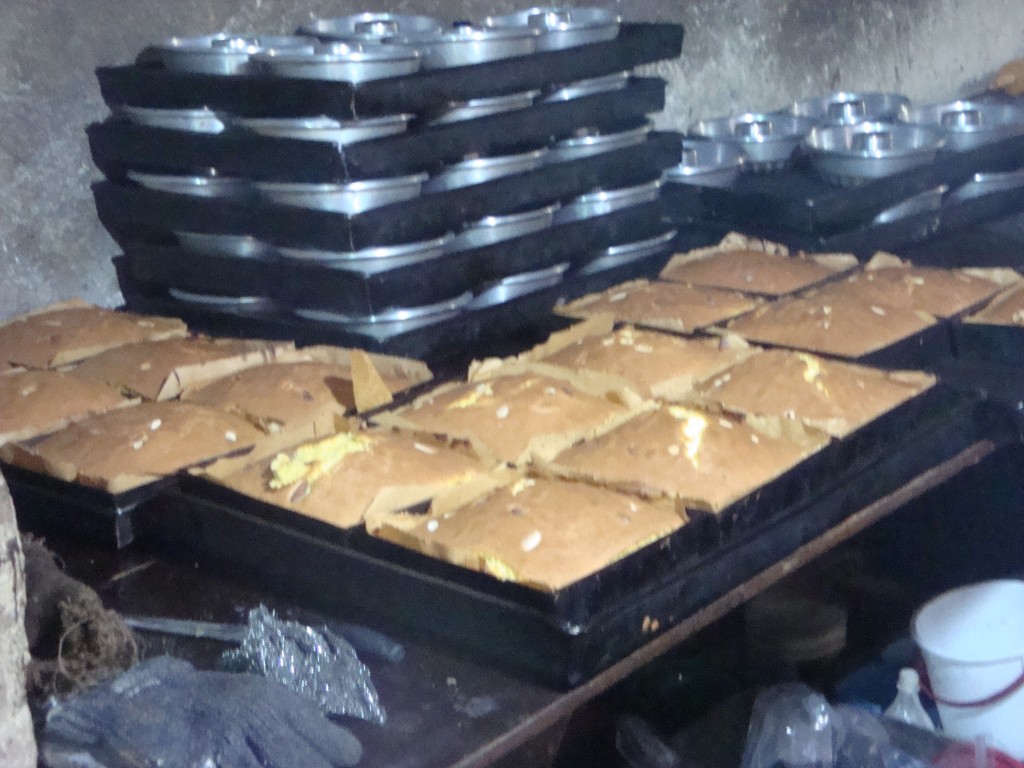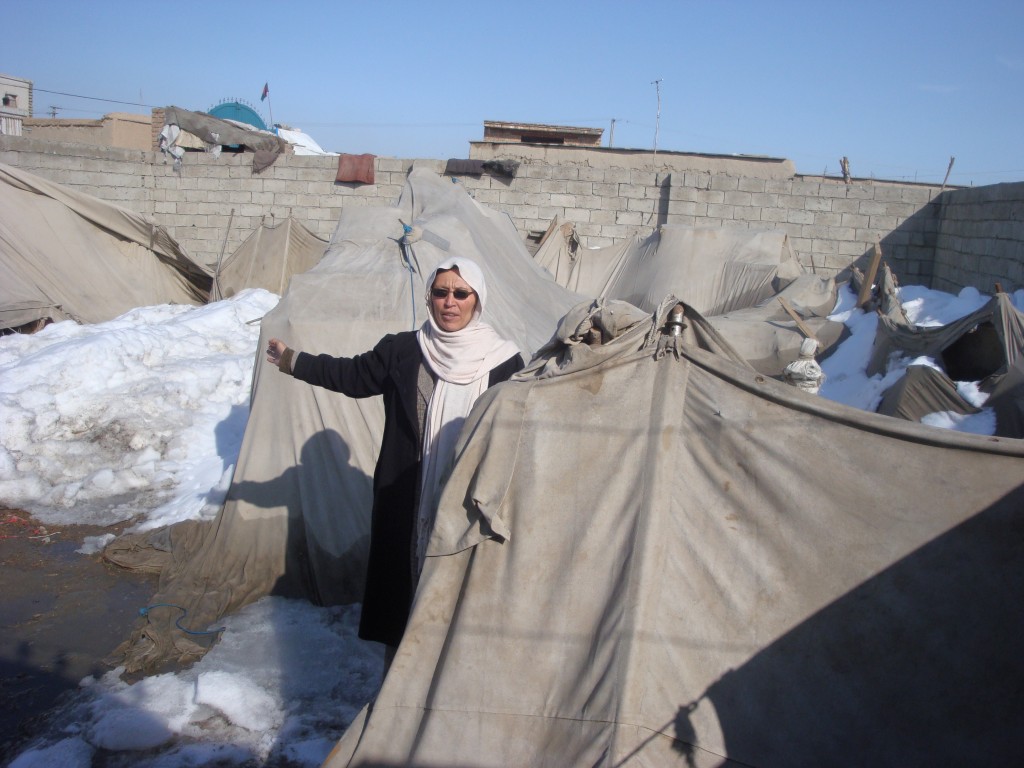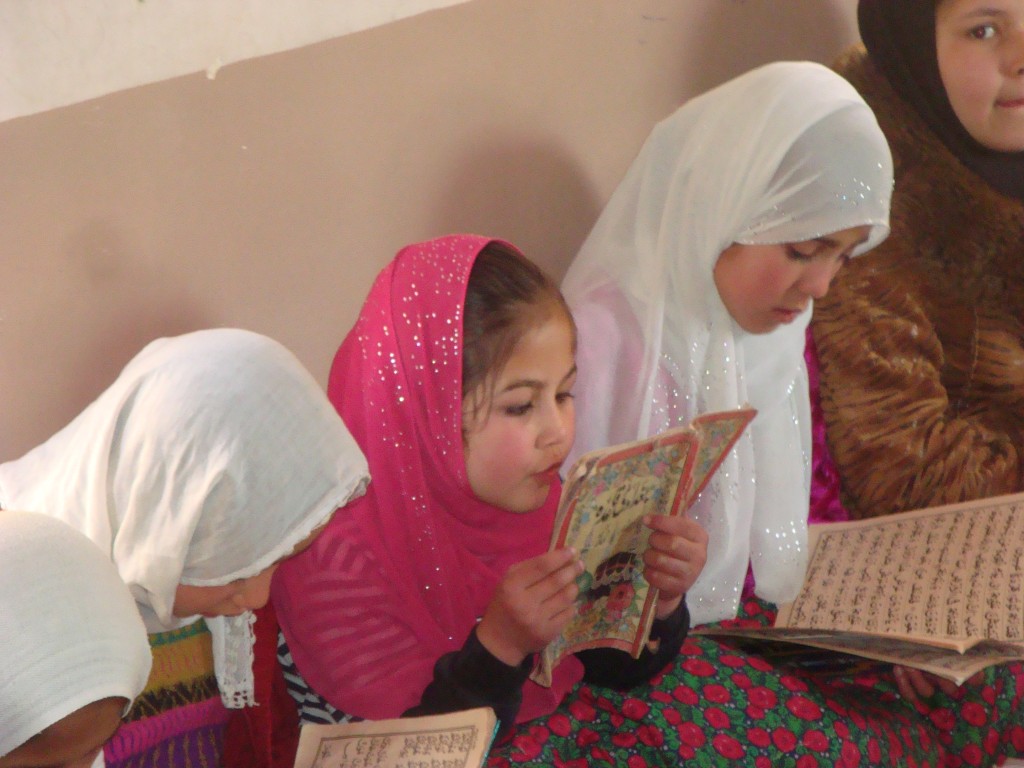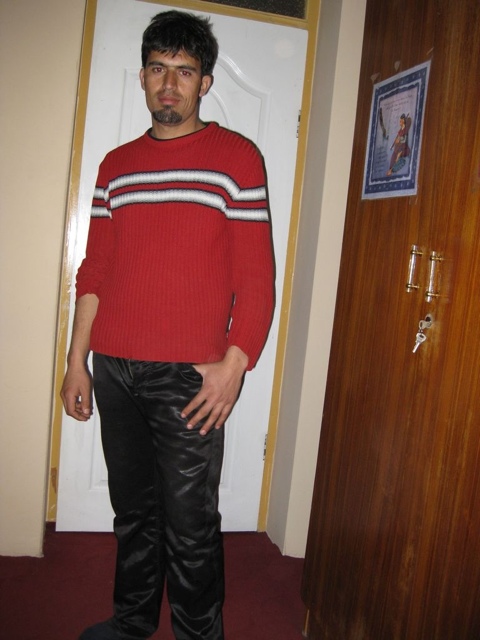As we walked to the tent we all took off our shoes, as is the custom in Afghanistan, but our hosts insisted that we keep our shoes on. The hospitality and generosity of the Afghan people was a recurring theme on the trip. I think there was a thin rug covering much of the ground, but I sat in the corner and the ground was completely frozen. Aware that showing the bottom of one’s feet is considered rude, I chose to sit on my heels, either because of the cold or because of my seated position, my feet were quickly numb. As Salena began to set up her video equipment we were served tea and men began to file in.
There was Ismail, Najib’s friend, who was one of 6 elected elders of the camp. There were two other men we spoke to (Ruzi Khan and Khoja Mohammed), and then there were maybe 10 other people in the tent. All men, all staring at us. I felt scared and out of place, I did not know the customs of this tribe. In college I studied Persian (Farsi, as spoken in Iran), I did manage to take a summer of Pashto language, but I am really unfamiliar with their tribe and customs and even less familiar with the language and culture of men. Culturally speaking, I didn’t belong there, I belonged with women, somewhere else. I didn’t see any women at this camp, they were in different tents. Just men, and their sons, staring at myself and my colleagues.
Ismail began by introducing himself and explaining where he was from Helmand province, a village called Minrodai. There were 850 families in the camp, which had existed for about 5 years and the majority of families there had lost a family member. Most of the people in his town were farmers, wheat and vegetables mostly, but their land had been destroyed, their homes, everything had been lost. They said that the majority of the destruction in their area must have come from Americans since the Taliban doesn’t have aircrafts; he told a story of 2 jets that had come and dropped bombs on their village. As he spoke men kept coming in and out. There was only one door in the mud tent so when someone came in the room would go pitch dark. We couldn’t really see their faces until they were in front of us and they would whisper something to Ismail and then stare at us. Salena was a journalist, doing her job, Tim, a middle-aged minister, having a conversation about cultural and religious understanding, and Najib was our translator, this all made a certain amount of sense, but who was this black girl with big white glasses and what was she doing there? I tried to blend into the wall.
Salena continued to interview Ismail, who emphasized a need for permanent housing. There is an expression in Pashto about the need for your own graveyard. Recently, NYTimes journalists had come to the camp, over the cold winter some children and an older woman had died because of the cold, and the elders took the journalists to their temporary graveyard. The ministry in charge of refugee affairs had given them wood, coal, blankets and tents but what they wanted was permanent housing, and daily work. The men had been going into town to work as laborers, but there wasn’t enough work. Ismail stressed that what he wanted was a small permanent house, his own graveyard and enough work. At this point Ismail became very busy with the visitors who kept coming in. He explained that his father had just returned from a pilgrimage to Mazar-e-Sharif, a holy place for healing, the visitors were coming to ask him about his father’s health and give him their best wishes. While I was relieved that the people weren’t just coming to ogle us, I was distraught as Ismail left to talk to these visitors and another man began to talk.
Khoja Mohammad took over and explained to us how upset he was about the Qur’an burning at Bagram airbase. When talking about the incident after the fact, a colleague who hadn’t taken down his name, said he had referred to this man simply as ‘Angry Man’. Khoja Mohammad never screamed, but he spoke loudly, pointedly and aggressively, he was very angry that Americans had burned their Holy Book. Although we had explained to him what little influence we had, he told us to tell our people not to do this again. He explained that they were ready to sacrifice if someone did this again. They had planned to protest with the others but their leaders advised them to be patient, and explained that the burning had been a mistake. President Karzai and his ministers advised them to be patient, and Obama had apologized. But he said that the next time they would surely have a jihad.
Khoja Mohammad was also very upset at America for our treatment of Afghan civilians; he told us of wedding parties, town meetings, women and children being bombed. He knew that Americans had satellite vision so he knew that these civilians were being targeted intentionally. We were supposed to be helping Afghanistan to stand on its own feet, not killing their children. He said we should not capture innocent people and say they are Taliban. Khoja Mohammad talked about a friend at Bagram prison who should have been released, he had done nothing wrong, he is innocent. They had written letters and talked to guards and people in charge but to no avail. Khoja Mohammad said that not all men with turbans and beards are Taliban, that these things mean at you are a good Muslim. People with beards and turbans are not enemies, and we should not kill these men. We tried to explain that we didn’t know how we could help, but it didn’t seem to matter, he continued.
Khoja Muhammad said that they elected the president, and they respect him. The Qur’an said that God likes patient people, and so they were being patient. But the Qur’an burning was a terrible thing. They had lost children and an old woman over the winter, but this man said it was not as bad as the Qur’an burning. This holy book that teaches them right from wrong (halal from haram) and was written by God. He told a story about a tent, how without tent poles there can be no ceiling, but God is so Great that he can hold up the entire sky. And here we are burning His words, burning the words of Allah.
Salena asked what he wanted, what his wish was, and he echoed what Ismail had said about a permanent home and some permanent land. Then he continued about the Qur’an burning. He said that Afghans have respected our religion, and we should respect theirs. We explained that there were Muslims in America too, and he said that he knew this. The people who burned the Qur’an should be punished, he said, the US military is a guest in Afghanistan to bring peace. The man finished with the sentiment that they knew how to separate one bad person from many good people and that we should do the same.
Our guide and translator had explained beforehand that when visiting the refugee camp we would need to bring some money with us, the camp was very poor and it was customary to bring an envelope with money. After packing up we gave them some money we had collected for them and explained that it was a small gesture and that we would go home to our constituents and tell them their story, perhaps they would be able to send more money. They counted it and distributed it among the elders to show their transparency. Although it seemed like they had just spent an hour berating us, they didn’t seem to want to let us leave. They offered us lunch and more tea and seemed sad to see us go.
There were many children by the entrance to the camp, some asked us for pens on our way out, Salena and Tim took pictures of some of the children, they seemed very eager to have their pictures taken. I chose not to, partly because I was still in shock from the experience. I spent the rest of the day processing the experience. We talked about it as a group in the evening, for me, I was terrified to be in a room full of angry men staring and screaming at me for an incident I barely even knew about when we left. I felt very out of place. Others said they were surprised by Khoja Mohammad, how he kept returning to the subject of the Qur’an burning as we tried to ask him different questions. Although he seemed to know that we couldn’t do anything about it, he seemed intent on telling us, and repeating to us, that this was a very bad thing that happened and that it must never happen again. As a group, I felt like we were some of the Americans who were most sympathetic to Islam as a religion and to his story, but the fact that he kept repeating himself made me feel victimized and attacked. Like he was yelling and me, and angry at me personally for burning a Qur’an, when I had spent years studying his culture and religion in an effort to better understand.
As we were walking to the car, Najib asked me how I was doing (I think at one point I may have actually had tears in my eyes), and I answered that I was scared, that all these men were angry and screaming at me in a room that I couldn’t get out of. Najib explained that he would never have put me in a dangerous situation, that it was completely safe. Though I was still scared, and in shock, I believed him. The trip was not about danger or recklessness, it was about cultural understanding and human exchange. As the trip continued, I became more comfortable and trusting, but this experience was the most intense, and ultimately the most memorable.
